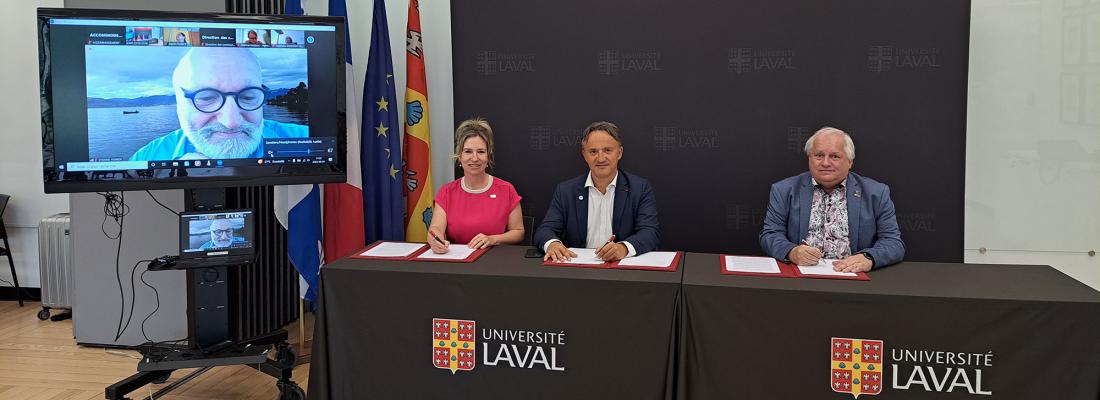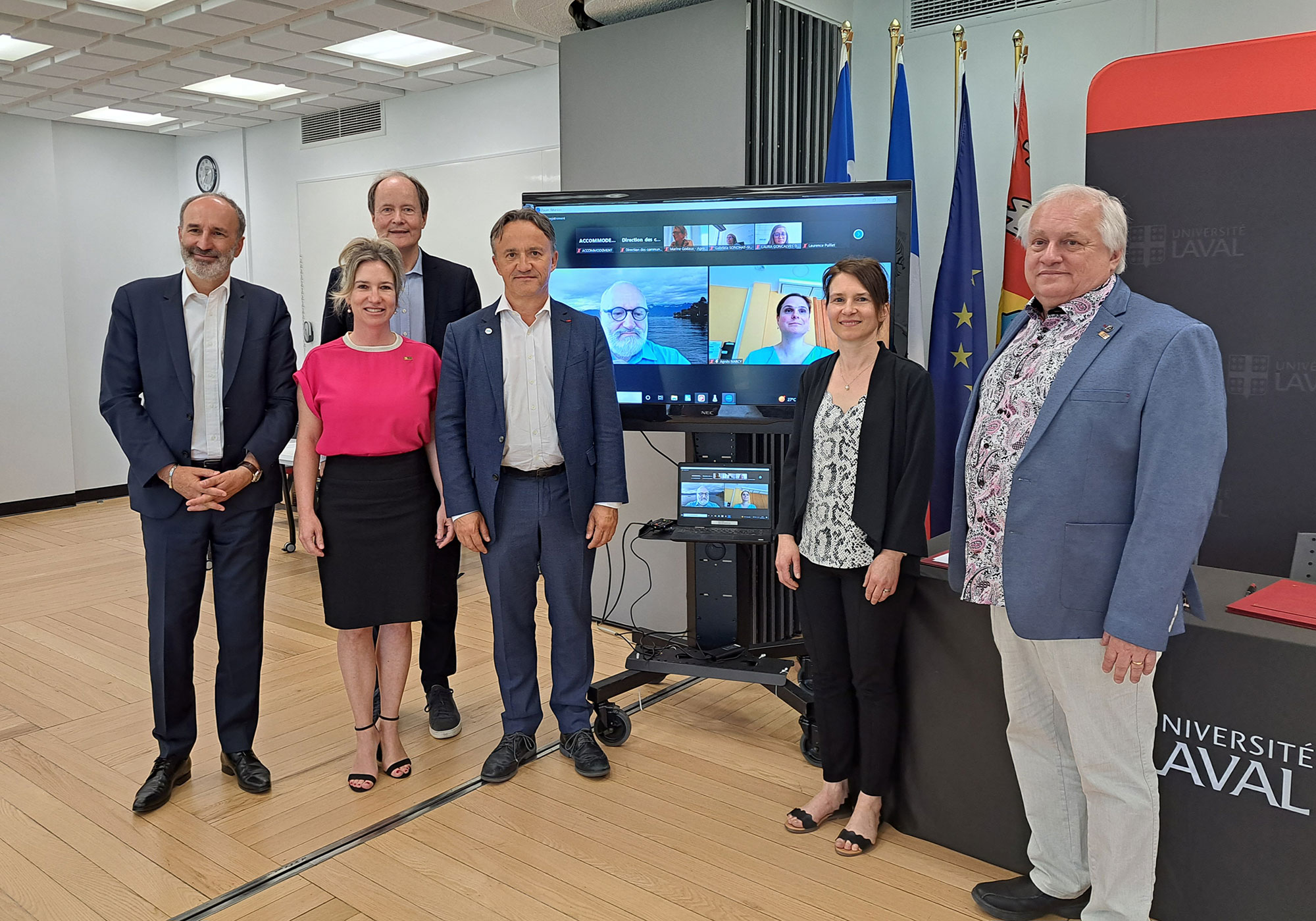Agroecology Reading time 2 min
France - Canada: a new International Associated Laboratory dedicated to animal feed for sustainable livestock farming
Published on 02 June 2023

Photo: signature for the creation of the LIA Nutri-Mod, from left to right: Étienne Verrier, Deputy Director General of AgroParisTech (on the screen), Eugénie Brouillet, Vice-Rector for Research, Creation and Innovation at Université Laval, Philippe Mauguin, Chair and CEO of INRAE, Denis Roy, Dean of the Faculty of Agriculture and Food Sciences at Université Laval.
An innovative multi-criteria approach
"Animal feed is a key factor in the sustainability of livestock farming systems, primarily in terms of the economic and environmental pillars," points out Agnès Narcy, a researcher at INRAE and co-director of the LIA Nutri-Mod. "It also indirectly affects the social pillar by having an impact on animal health and welfare, the quality and acceptability of animal products and production methods, and integrating farming activities into the social environment.”
Marie-Pierre Létourneau-Montminy, co-director of the LIA Nutri-Mod and professor in the Faculty of Agriculture and Food Sciences at Université Laval adds, "In this context, the priorities are to identify raw materials that can be used for animal feed without competing with human food, and whose use, from production through to effluent recovery, is sustainable.” She goes on to say, “This requires the co-adaptation of the animal and its diet in a variety of production environments - design of nutritional strategies that are an integral part of the different breeding systems - as well as multicriteria evaluation methods for the performance of these systems that integrate the three pillars of sustainability.”
The research carried out as part of this LIA is a prerequisite for the emergence of new dietary recommendations for the development of precision feeding systems, which must incorporate requirements common to both countries:
- in environmental terms: saving non-renewable resources, controlling waste and making better use of the soil-plant-air cycle;
- animal health and welfare;
- economic viability.
Three main areas of research for new levers of action
The three research areas supported by the LIA are:
1. Precision mineral nutrition for sustainable feed solutions
2. Studying the conditions for co-adaptation of the animal and variations in food intake
3. Integrating knowledge into mechanistic and empirical models.
The collaboration will involve the pooling of data, the exchange of methodologies and the training of highly qualified staff at all three levels (bachelor's degree, master's degree and PhD), as well as post-doctoral students and research professionals working in different research contexts.
Given the scientific and applied value of these tools, the research planned as part of the LIA is of particular interest to professionals in the animal feed industry and, more generally, those involved in the animal sectors concerned.
The LIA Nutri-Mod programme brings together members of the Animal Sciences division (SAN) in the Faculty of Agriculture and Food Sciences at Université Laval, the joint research units BOA (Avian Biology and Poultry Research) and MoSAR (Systemic Modeling applied to Ruminants) (INRAE – AgroParisTech), which is under the direction of INRAE’s Animal Physiology and Livestock Systems Division. These teams enjoy a long and fruitful collaboration which, since 2009, has led to a number of co-supervised theses, scientific mobility and research collaborations, including a major Agri Science project between SAN (Université Laval) and BOA (INRAE – Université de Tours) which has just been completed.

